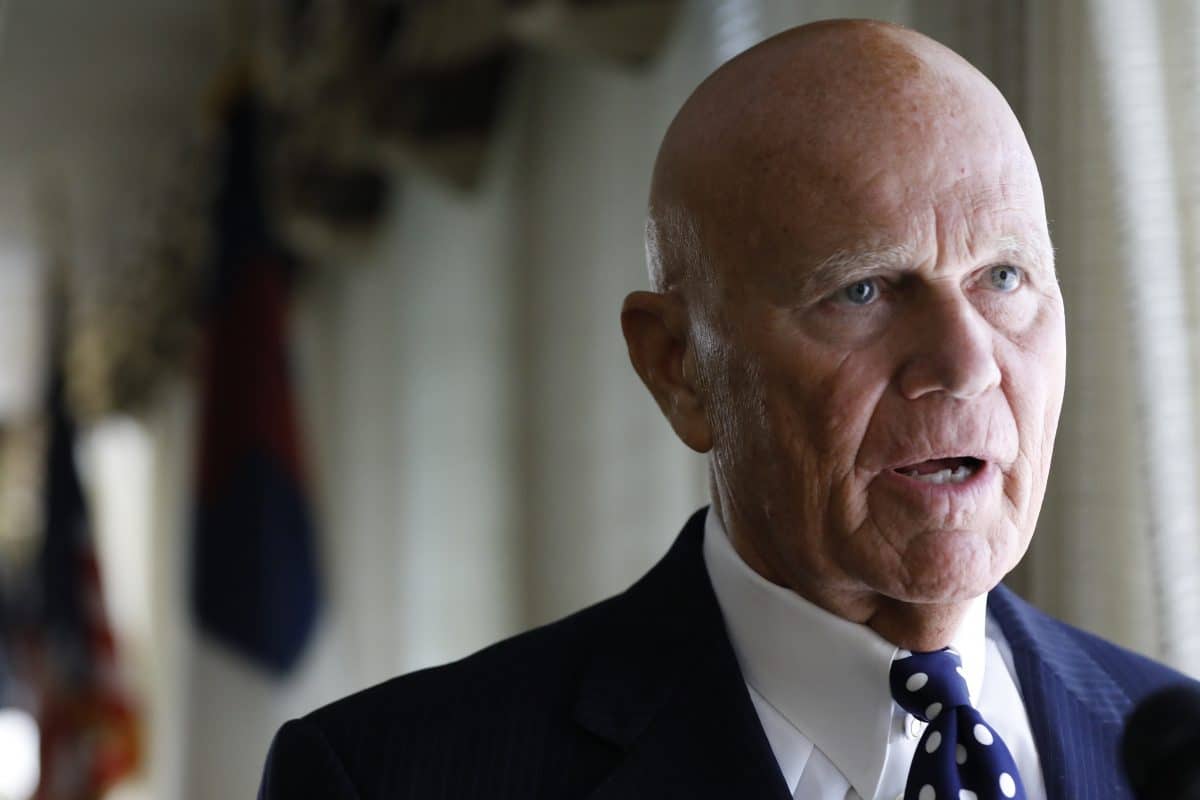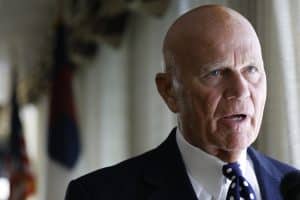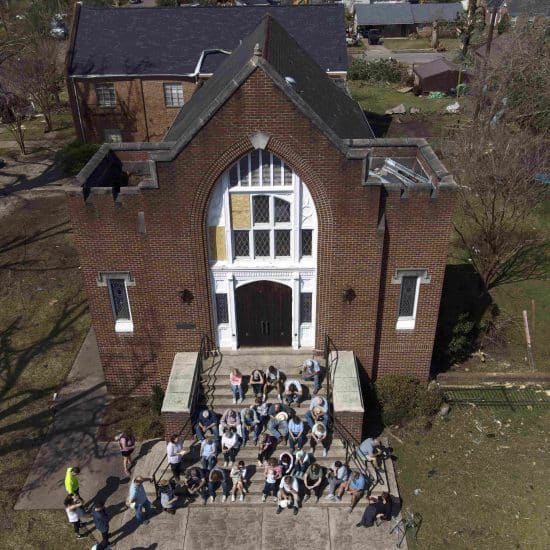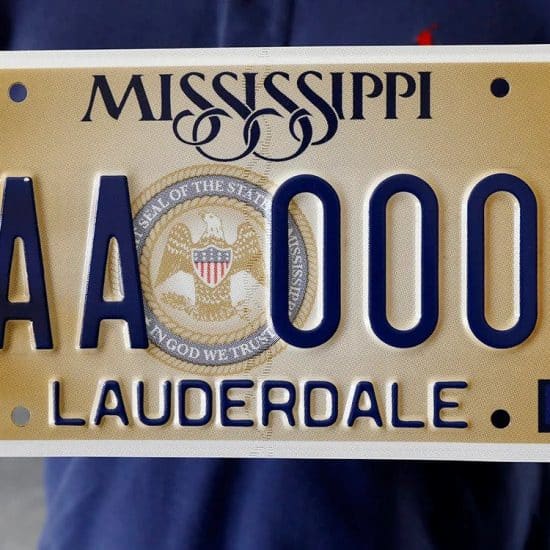
The leaders of the Mississippi Baptist Convention — the largest religious group in the state — urged state legislators Tuesday (June 23) to change the state’s flag, the last in the nation to include the Confederate battle emblem in the design. As Confederate monuments across the country have been defaced, toppled by protesters, and removed by officials this month amid “Black Lives Matter,” the design of the state flag of Mississippi has again come to the forefront.

Shawn Parker, executive director-treasurer of the Mississippi Baptist Convention, at a news conference, June 23, 2020, in Jackson, Mississippi. (Rogelio V. Solis/Associated Press)
Shawn Parker, executive director-treasurer of the convention said at the news conference that they sought to “offer a voice of healing in the name of the Lord Jesus Christ.” And he stressed their position wasn’t based on politics, economics, or athletics but “motivated by our understanding of the teaching of Jesus Christ.”
He cited the “Golden Rule” and the command to “love your neighbor as yourself” to explain why they took this position to be “not a political player in the process” but “a prophetic voice” on “a moral issue and a gospel issue.” And he expressed his hope that their stand would help “bring healing to the racial tensions that are felt in Mississippi.”
In recent weeks, other religious groups, the NCAA, the Southeastern Conference, and several businesses have called on legislators to remove the Confederate battle emblem — a red field with a blue X and 13 white stars — from the upper corner of the state flag. Lawmakers working on a bill to make that change say they don’t yet have votes before the 2020 legislative session ends this week.
The mostly-white state group of Southern Baptists includes more than 2,100 churches with more than 500,000 members. The MBC’s leaders announced the statement — the first by the convention against the flag’s design — in a press conference in their building across the street from the state Capitol building.
The MBC statement notes that the debate about the flag “is not merely a political issue” but an ethical one that required Christians to speak due to biblical commands to love their neighbors.
“While some may see the current flag as a celebration of heritage, a significant portion of our state sees it as a relic of racism and a symbol of hatred,” the statement explains. “The racial overtones of this flag’s appearance make this discussion a moral issue.”
“The need to change the flag is a matter of discipleship for every follower of Jesus Christ,” the statement adds.
The resolution thus “calls for a change to the current flag in order to mitigate the hurt that its symbolism entails.” The MBC therefore called on state legislators to make the change, and for Baptists across the state to pray for this to occur.
The resolution was signed by the president, executive director-treasurer, the head of the MBC’s Christian Action Commission, and by every living past president of the convention. The 16-member executive committee unanimously voted to approve the resolution Tuesday before its release. The Southern Baptist Convention similarly passed a resolution in 2016 urging against the flying of the Confederate battle flag.
Ken Hester, MBC president, recited biblical teachings that taught the equality of all people made in the image of God. Thus, he said he felt compelled to urge the state’s lawmakers to change the flag.
“I do so hopefully to keep me in line with the teachings of the Apostle John who said, ‘Let us not love with word or with tongue only but in deed and truth,’” Hester added.
Clarence Cooper, current president of the MBC’s executive board and a past MBC president, recalled the teaching of Jesus about cutting off one’s right hand or plucking out one’s eye if it will “keep you from the gospel.” Thus, he called on lawmakers to remove the offensive state flag.

Jim Futral, executive director-treasurer emeritus of the Mississippi Baptist Convention, at a news conference, June 23, 2020, in Jackson, Mississippi. (Rogelio V. Solis/Associated Press)
Jim Futral, executive director-treasurer emeritus and past MBC president, admitted it was “somewhat out of all our comfort zone to speak to this issue,” but added that “the time is now” to speak and to change the flag to remove “the mark of unfairness.”
“The fact is the symbol on our flag is the living, lasting symbol of tyranny, of oppression, of slavery,” he said. “And somehow, someway, people who feel that oppression upon them to this day, do not need to be living with that in our state.”
“We didn’t come here to rewrite history,” he added. “But we can impact the future. And we can write a script for the future.”






